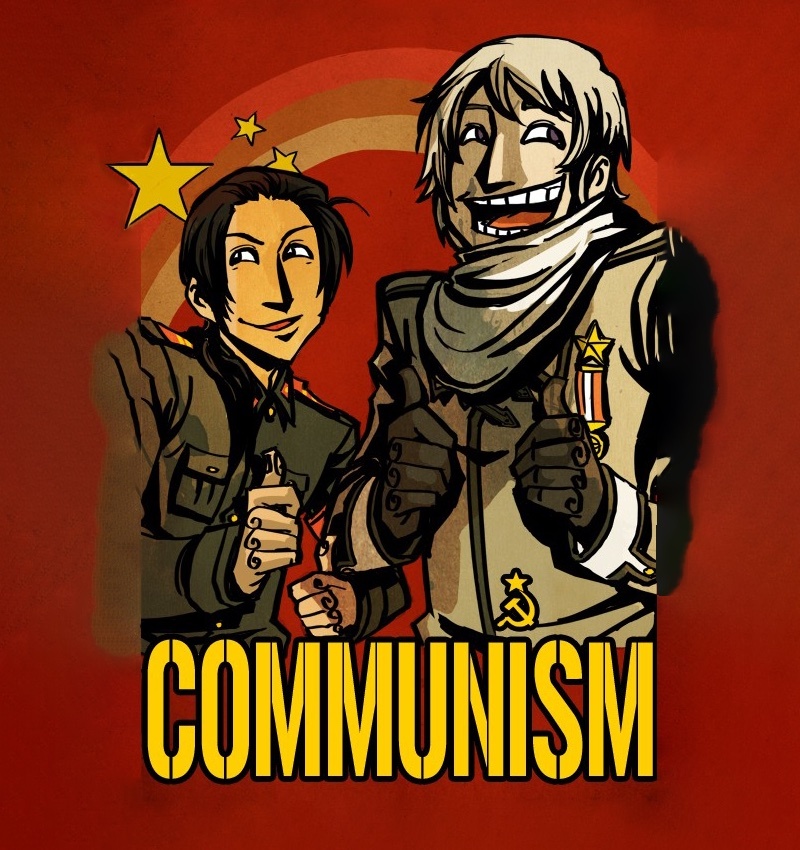

This makes sense on multiple levels, both from an ideological level and also from a pragmatic standpoint.
This end of detente visibly began with the demolition of that Unification Arch a while back and pausing the reconciliation initiatives like the “unified Korea” Olympic teams since the 2010s. This recent turn away from the goal of “unification” is a rather important ideological step for the DPRK because that aspiration, while noble, had always risked putting the cart before the horse, as the history of 20th century socialism showed.
In the DDR, the desperation for “unification” highlighted by the reception to BRD Ostpolitik prevented the development of an independent national identity. This meant that when capitalist restoration succeeded, the DDR was unilaterally annexed into the BRD by Kohl, who infamously managed to warp the “We are the People” protests into a “We are One People” color revolution. Any semblance of bargaining power for these “one people” of the DDR disappeared with the state. There was then the disgusting phenomenon of BRD landlords swarming into the former DDR to reclaim their “old” property and land, a kind of “Nakba” narrative except the fascists were the ones holding onto the keys. The DDR is a cautionary tale that unification cannot be done at any cost. In truth, it would be better for the Korean peninsula to be permanently fractured for the foreseeable future if the only alternative for the DPRK is a DDR-style “unification.” As such, it wouldn’t hurt to ideologically de-emphasize the concept of “unification” within Korean society, which ending this detente will contribute towards.
From a pragmatic level, there is actually little benefit for the DPRK to maintaining relations with the current regime in South Korea. Its present leadership has completely embraced South Korea’s vassal status not just to the US but also doubly to Japan, surrendering unilaterally on longstanding issues like comfort women and just this week inviting Japanese troops to be stationed on Korean soil without requiring its legislature’s permission. This disregard for South Korea’s dignity is plainly to forcibly bind South Korean foreign policy to the US-Japanese military bloc in the New Cold War. Remarkably, this is happening under a Korean Milei who won the 2022 election by a mere 0.73% - who has eliminated any South Korean foreign policy autonomy through the stirring electoral mandate of a 247K vote margin of 32.5M.
Given this context, the DPRK faces minimal downsides in reducing relations. This opens the door for future engagement if a more reconciliation-focused leader, similar to Moon Jae-In, comes to power. In such a scenario, the DPRK could easily propose reconnecting severed ties, including these literal severed roads, which would generate positive headlines in South Korea for that counterpart’s approval ratings without making significant concessions.







There’s the ideological reasons that all historically conscious leftists know about and while they were the pretexts for the split, I’ve come to the position over time that they don’t represent the core issue that initiated it. As such, there’s a fundamental relationship dynamic that should be clarified before anyone gets into studying the deeper weeds of the various grievances that propelled the split. This dynamic is also the principal lesson of value to AES and socialism today which to learn from in preventing such a catastrophic inter-fraternal relationship rupture from repeating itself under the same lines.
As a background, I would argue that the fundamental problem with the entire Comintern movement post-WWII was that it took the system of democratic centralism from the state level to the inter-state level. This was driven by the noble goal of finally breaking down the petty national divisions that bound human society for all of its existence through grasping the historic opportunity presented by the 20th century socialist revolutions and the historic atmosphere of internationalism.
The problem is that, in practice, inter-state democratic centralism led essentially de facto to the leadership of the socialist bloc by the first worker’s state, the USSR. This would not be so intolerable if it weren’t for the coincidence that nearly all socialist states that came into existence after WWII, with the sole exception of the DDR, were countries that had been the historic victims of colonialism and imperialist control where the indigenous populations had always yearned to finally take control of their own nations. This was true across the socialist world - of Poland, of Czechoslovakia, of Yugoslavia, of China and of the DPRK. The socialist revolutions were therefore also simultaneously struggles for national liberation. For these countries to win their independence and sovereignty - only to immediately be expected to subsume themselves under Comintern democratic centralism as led by the USSR - posed a serious tension that eventually snapped to catastrophic consequences. Comintern internationalism and inter-state democratic centralism were therefore arguably noble ideas, yet also ultimately idealistic, utopian and unfortunately ahead of their time. Implemented in the context of the mid-20th century, they could only end up clashing with the historical conditions of the USSR’s new fraternal socialist partners.
No Soviet leader seems to have truly ever grasped this contradiction, including Stalin. The split with Yugoslavia, through his quite heavy-handed attempt to depose Tito within the CPY and then expelling Yugoslavia from the Comintern, was one of Stalin’s actual and serious errors. Kate Hudson’s work “Breaking the South Slav Dream: The Rise and Fall of Yugoslavia” argues that this was all precipitated by Tito’s refusal to submit to Soviet supervision of its foreign policy under Comintern democratic centralism. MLs of the day largely sided with the USSR and denounced “Titoism” for its introduction of market forces as a horrifying betrayal. Tito’s refusal to submit to democratic centralism (i.e. the CPSU) was then portrayed as akin to Trotsky’s own actions. Obvious, given the conditions of AES today, principled MLs are more sympathetic to the aims of the CPY, but the Yugoslavs at the time were virtually ostracized. Yugoslavia was then isolated from the entire socialist bloc with all Soviet aid withdrawn and it is alleged by Hudson that the CPSU promoted several purges in the other Parties in Europe to remove “Titoist sympathizers.”
This inevitably forced the SFRY to turn to the West and exacerbated its experiment with market socialism, which the USSR denounced, into an outright submission to Western capital in many aspects in order to receive desperately needed assistance for its post-war reconstruction, introducing various institutional contradictions that would later culminate in the IMF debt spiral that the SFRY found itself in the 1980s. The refusal by the CPSU to allow Yugoslavia to propose a Balkan federation with Bulgaria was also perceived by the CPY as Moscow’s fear of an enlarged socialist state becoming a rival within the Comintern. The situation deteriorated to the extent that the West’s scaremongering tactic of the week became that of the “imminent Soviet invasion of Yugoslavia.”
The fracture between the CPSU and the CPY echo the later Sino-Soviet quite tellingly and this is likely by its nature indicative of a general defect in Soviet inter-socialist state policy. In 1989, Deng gave an extremely frank speech to Gorbachev during the latter’s state visit on the history of Sino-Soviet relations from the Chinese perspective and he himself characterized it like this:
The Soviet policy of Comintern and socialist bloc leadership through a form of inter-state democratic centralism by design prevented the treatment of fraternal states as equals. There was already the power, resource and economic asymmetries between the USSR and every other socialist state that prevented any claim to equality on material grounds and all of that combined with such a policy meant counterparts like Yugoslavia and later China found it difficult to see the relationship as one between equals. Given that the USSR’s socialist partner states were nearly all countries with histories of national subjugation and thus had a particular desire to be treated as a sovereign and independent polity for once, the potential for relationship conflicts was, in a sense, inevitable and such a dynamic of “inequality” was what Deng himself identified as the actual root problem that defined the Sino-Soviet relationship.
To that end, it could be argued that the USSR carried through with such a mentality all the way to the very end with Gorbachev, who completely went over Honecker’s head to discuss the terms of selling out the DDR to Kohl and the US directly, something that Honecker’s memoirs written in jail (after being sold out by Yeltsin who allowed him to be extradited from Moscow to the former DDR in a perverse BRD orchestrated show trial on his “crimes”) bitterly recount.